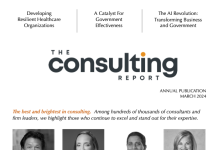Hailed by some as the next iteration of the internet and a digital revolution in the making, the metaverse is continuing to evolve and grow, with businesses beginning to embrace its potential. While still in its early stages, the metaverse is apparently reflecting the real world a little too accurately, suffering from similar gender equity issues and seeing a shortfall of women in leadership roles that can shape the future of the cutting-edge technology, according to a new article from McKinsey & Company.
Authored by McKinsey Senior Partner Lareina Yee and Partner Mina Alaghband, the article, titled, “Even in the metaverse, women remain locked out of leadership roles,” shares insights into how gender dynamics are playing out in the early form of the new digital frontier, examining a range of data and finding a gap similar to the one that exists in many businesses, from start-ups to Fortune 500 companies, where less than 10% of Fortune 500 CEOs are women, only 17% of venture capital dollars go to women led companies, and only 15% of U.S. venture capital general partners are women.
According to the data, women are spending more time in the ur-metaverse than men, and are more likely to lead and implement metaverse initiatives, but in spite of their higher levels of participation, women still remain a minority in the metaverse economy. McKinsey’s research shows that 41% of women have used a primary metaverse platform or participated in a digital world for more than a year, compared to 34% of men. Further, 35% of women surveyed are power users, spending more than three hours a week in the metaverse, relative to 29% of men.
Gender inequalities in the real world seem amplified in the metaverse, with only 10% of metaverse start-ups receiving funding over the past five years being led by women, and receiving less than 5% of a total of $112 billion in VC funding secured. Additionally, of the multiple organizations shaping metaverse interoperability standards, 90% of leadership roles are held by men, paralleling the roughly 91% of Fortune 500 companies led by men today.
Given that the technology is still in its earliest stages, it’s not too late to turn the situation around. Yee recommended that companies seeking to build a more inclusive metaverse capitalize upon their freedom to attract people from diverse backgrounds and build a pipeline of future women leaders. With women already proving to be a powerful metaverse user base, addressing the gender gap before it becomes too cemented is of paramount importance to shaping a digital future that embraces equality.

























